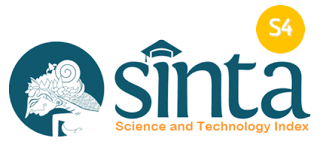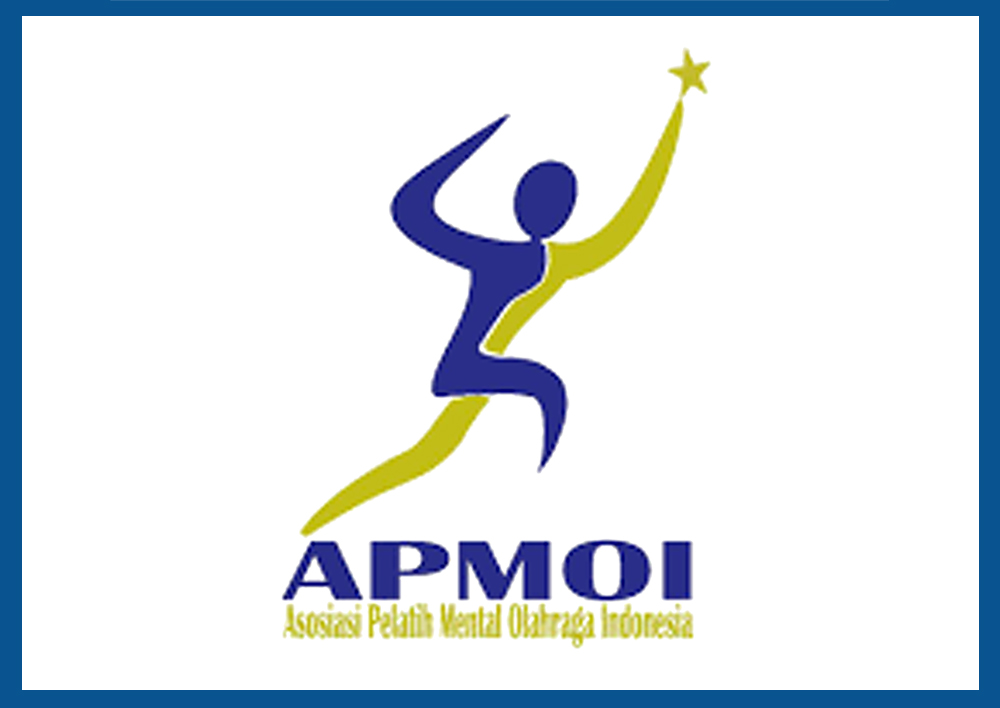Komitmen Pengurus dalam Memajukan Organisasi Olahraga Special Olympic Indonesia
Abstract
Komitmen memajukan organisasi merupakan sebuah keingingn yang harus dimiliki oleh para pengurus organisasi. Sebuah organisasi tidak akan mungkin berkembang menjadi lebih baik, jika tidak didukung oleh para pengurus organisasi. Tujuan penelitian ini adalah untuk mengetahui hubungan motivasi dan komitmen pengurus organisasi dalam memajukan dan meningkatkan Special Olympic Indonesia (SOIna). Metode penelitian menggunakan kuantitatif dengan pendekatan korelasional. Sampel diambil dengan non-probabilitas jenis snowball. Oleh karena itu diperoleh responden sebanyak 51, yang merupakan pengurus SOIna di seluruh Indonesia (pengurus pusat, provinsi dan kota/kabupaten). Hasil penelitian menjelaskan bahwa terdapat sebuah hubungan antara motivasi dan komitmen pengurus organisasi dalam memajukan dan meningkatkan kualitas SOIna. Hasil penelitian ini memberikan sebuah implikasi penting untuk para pengurus dapat memiliki motivasi yang tinggi dalam mengurus organisasi SOIna. Penelitian ini hanya sebatas mengetahui hubungan motivasi dan komitmen berorganisasi dengan menggunakan angket sebagai alat ukurnya. Sehingga sangat direkomendasikan untuk masa depan dapat dilakukan penelitian lebih mendalam seperti studi kasus untuk mengetahui dan memperdalam hasil temuan yang diperoleh.
Downloads
References
Bulut, C., & Culha, O. (2010). The effects of organizational training on organizational commitment. International Journal of Training and Development, 14(4), 309–322. https://doi.org/10.1111/j.1468-2419.2010.00360.x
Chen, R. K., Brodwin, M. G., Cardoso, E., & Chan, F. (2002). Attitudes toward people with disabilities in the social context of dating and marriage: A comparison of American, Taiwanese, and Singaporean college students. Journal of Rehabilitation, 68(4), 5–11.
Cohen, A. (2007). Commitment before and after: An evaluation and reconceptualization of organizational commitment. Human Resource Management Review, 17(3), 336–354. https://doi.org/10.1016/j.hrmr.2007.05.001
Dimitrova-Radojicic, D., & Chichevska-Jovanova, N. (2014). Parents attitude: Inclusive education of children with disability. International Journal of Cognitive Research in Science, Engineering and Education, 2(1), 13–18.
Eliyana, A., Ma’arif, S., & Muzakki. (2019). Job satisfaction and organizational commitment effect in the transformational leadership towards employee performance. European Research on Management and Business Economics, 25(3), 144–150. https://doi.org/10.1016/j.iedeen.2019.05.001
George, L., & Sabapathy, T. (2011). Work Motivation of Teachers: Relationship with Organizational Commitment. Canadian Social Science, 7(1), 90–99. https://doi.org/10.3968/j.css.1923669720110701.009
Laws, G., & Kelly, E. (2005). The Attitudes and friendship intentions of children in United Kingdom mainstream schools towards peers with physical or intellectual disabilities. International Journal of Disability, Development and Education, 52(2), 79–99. https://doi.org/10.1080/10349120500086298
Lee, C.-C., & Chen, C.-J. (2013). The Relationship between Employee Commitment and Job Attitude and Its Effect on Service Quality in the Tourism Industry. American Journal of Industrial and Business Management, 03(02), 196–208. https://doi.org/10.4236/ajibm.2013.32025
Li, C., & Wang, C. K. J. (2013). Effect of Exposure to Special Olympic Games on Attitudes of Volunteers towards Inclusion of People with Intellectual Disabilities. Journal of Applied Research in Intellectual Disabilities, 26(6), 515–521. https://doi.org/10.1111/jar.12053
Loan, L. T. M. (2020). The influence of organizational commitment on employees’ job performance: The mediating role of job satisfaction. Management Science Letters, 10(14), 3307–3312. https://doi.org/10.5267/j.msl.2020.6.007
Lok, P., & Crawford, J. (2001). Antecedents of organizational commitment and the mediating role of job satisfaction. Journal of Managerial Psychology, 16(8), 594–613. https://doi.org/10.1108/EUM0000000006302
Meyer, J. P., Gagné, M., & Parfyonova, N. M. (2010). Toward an evidence-based model of engagement: What we can learn from motivation and commitment research. In Handbook of Employee Engagement: Perspectives, Issues, Research and Practice (Issue 1991, pp. 62–73). https://doi.org/10.4337/9781849806374.00011
Moon, M. J. (2000). Commitment Revisited in New Public Management: Motivation, Organizational Culture, Sector, and Managerial Level. Public Performance & Management Review, 24(2), 177–194. https://doi.org/10.2307/3381267
Mottaz, C. J. (1988). Determinants of Organizational Commitment. Human Relations, 41(6), 467–482. https://doi.org/10.1177/001872678804100604
Mowday, R. T., Steers, R. M., & Porter, L. W. (1979). The measurement of organizational commitment. Journal of Vocational Behavior, 14(2), 224–247. https://doi.org/10.1016/0001-8791(79)90072-1
Nguyen, T. V. N., Do, T. Q., & Dinh, C. H. (2020). Factors Affecting Employees’ Organizational Commitment in Foreign Direct Investment Enterprises. Journal of Asian Finance, Economics and Business, 7(10), 413–421. https://doi.org/10.13106/jafeb.2020.vol7.no10.413
O’Shea, M. S., Maziel Girón, J., Cabrera, L., Lescano, A. G., & Taren, D. L. (2012). Public perceptions of intellectual disability in a shantytown community in Lima, Peru. International Health, 4(4), 253–259. https://doi.org/10.1016/j.inhe.2012.07.001
Piercy, M., Wilton, K., & Townsend, M. (2002). Promoting the social acceptance of young children with moderate-severe intellectual disabilities using cooperative-learning techniques. American Journal on Mental Retardation, 107(5), 352–360. https://doi.org/10.1352/0895-8017(2002)107<0352:PTSAOY>2.0.CO;2
Reichers, A. E. (1985). A review and reconceptualization of organizational commitment”. Academy of Management Review, 10(3), 465–476. https://doi.org/10.5465/amr.1985.4278960
Shree, A., & Shukla, P. C. (2016). Intellectual Disability: Definition, classification, causes and characteristics. Learning Community-An International Journal of Educational and Social Development, 7(1), 9. https://doi.org/10.5958/2231-458x.2016.00002.6
Skaalvik, E. M., & Federici, R. A. (2014). Students ’ Perceptions of Emotional and Instrumental Teacher Support : Students ’ Perceptions of Emotional and Instrumental Teacher Support : Relations with Motivational and Emotional Responses. International Education Studies, 7(1), 21–36. https://doi.org/10.5539/ies.v7n1p21
Suharto, Suyanto, & Hendri, N. (2019). The impact of organizational commitment on job performance. International Journal of Economics and Business Administration, 7(2), 189–206. https://doi.org/10.35808/ijeba/227
Suryani, I. (2018). Factors Affecting Organizational Commitment. Jurnal Manajemen Dan Inovasi, 9(1), 26–34.
Visanh, P., & Xu, H. (2018). Factors affecting organizational commitment of employee’s of Lao Development Bank. Sociology International Journal, 2(6), 809–818. https://doi.org/10.15406/sij.2018.02.00141
Zardeckaite-Matulaitiene, K., & Paluckaite, U. (2013). The Relation Between Teacher’s Self-Disclosure and Student’s Motivation To Learn. European Scientific Journal, 9(28), 456–469. http://eujournal.org/index.php/esj/article/viewFile/1910/1852
Zhu, Y., Zhan, Y. can, Zhu, J. M., Huang, L., Zhang, L., Zhang, M., & Li, B. K. (2019). The development and psychometric validation of a Chinese empathy motivation scale. Journal of Clinical Nursing, 28(13–14), 2599–2612. https://doi.org/10.1111/jocn.14846



_(700_x_400_mm)_(3)_.png)


_(700_x_400_mm)_1.png)



